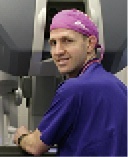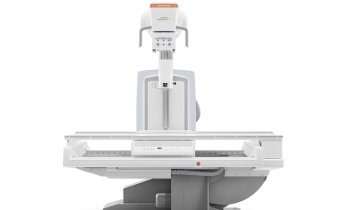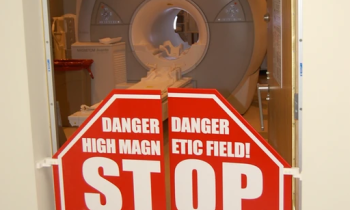UK: Multidisciplinary teamwork will stay
With the effectiveness of ‘tumour board review’ in the USA questioned in a 2012 study published in the Journal of the National Cancer Institute, Mark Nicholls sought the opinion of UK-based consultant urological surgeon Ben Challacombe

In the UK, a multi-disciplinary team (MDT) review for all cancer patients has been a requirement for a number of years and was established under Improving Outcomes Guidance (IOG) issued within the National Health Service (NHS).
Whilst the phrase ‘tumour board review’ is not in common use in the UK, the concept of having input from a variety of medical experts is embraced in the MDT approach, where surgeons, pathologists, oncologists, radiologists, palliative care specialists, and specialist nurses (to liaise between clinicians and patients) gather on a weekly basis to discuss patient care and treatment plans.
The concept, although in place in many institutions beforehand, was formalised in the mid-2000s through IOG to ensure that everybody who has a new cancer diagnosis has their case discussed at weekly multi-disciplinary meetings, which can last between an hour-and-a-half to half a day. Yet, while the approach is mandatory, there are questions within the UK over its effectiveness.
Ben Challacombe, a consultant urological surgeon at Guys and St Thomas’ NHS Foundation Trust in London, offering complex surgery of the prostate, bladder and kidney, commented: ‘I’ve seen audits in the south-east of England region in urology that have shown the number of cases where the multi-disciplinary meeting makes a significant difference to patient care is quite limited. This is often the case in smaller hospitals with less complex cases.
‘Somewhere between 80-90% of the time it doesn’t make a measurable difference because diseases are becoming so structured in how we manage them; you know how big the tumour is, where it is, what type it is, there is a standard pathway as to how that particular person would be managed.’ Where they do prove invaluable, he added, is in more rare tumours and unusual situations where collaboration can identify a specific approach.
The MDT meetings in which he is involved bring together up to 40 health professionals through tele-links across four hospital sites in south-east London.
While many cases are ‘routine’ and do not need lengthy discussion, he said it gives a patient reassurance that a number of different consultants have discussed their case and agreed their course of treatment; it also benefits the clinician who will see the patient shortly after the meeting and be familiar with their case; and it maintains a link with smaller referring hospitals.
‘It’s a conduit for good communication between the trust’s hospitals,’ he said. ‘The team getting together once a week is another benefit and has helped us work better together as a group, particularly between surgeons and oncologists. It has helped that collaboration.’
However, he remains concerned that some cases needing little discussion can take more time than necessary, leaving less time for the more difficult complex cases and for many examples, there are already clear treatment guidelines in place to which the team must adhere, particularly in prostate cases, which are 95% protocol-driven. ‘We get through 50 people in 90 minutes, so we only have one or two minutes on each patient. What would be better is ticking off 30 because they are all easier cases and fully discussing those where there is a real diagnostic or treatment dilemma.’
There is also the fact that the patient is not present and often other factors, such as a patient’s weight, other medical problems and co-morbidities are not known. ‘There is a case for having patient involvement,’ Ben Challacombe believes, ‘or having more information to allow you to really consider it from the actual point of view of what the patient wants.’
Although there are time constraints and frustrations, he does acknowledge the benefit of having combined expertise present. ‘There have been times when I was going to do one thing and someone in the team has come up with another better way to proceed. You have more people’s “eyes”; particularly useful is the radiologist who may spot, for example, that not only is there a tumour in the kidney but one in the lung, too.
‘You can be saved from doing the wrong type of operation, or even operating at all, by having a large number of people all looking through the scans and pathology, so I think it’s a safety belt for us a lot of the time as well.’
Despite the mixed view of MDTs (tumour boards), they are set to remain in place in the UK with the NHS maintaining that ‘multidisciplinary team working is vital for the improvement of outcomes for cancer patients’.
Profile:
Ben Challacombe MD was appointed consultant urological surgeon to Guy’s and St Thomas’ Hospitals in London in 2010. Previously, he has worked at a number of hospitals in the London area and the Royal Melbourne Hospital, Australia. A Fellow of the Royal College of Surgeons, he conducts complex surgery of the prostate, bladder and kidney, with a particular focus on laparoscopic and robotic procedures. He is involved in academic research into prostatic disease having written over 70 peer-reviewed publications and 20 book chapters on this subject.
26.08.2013









